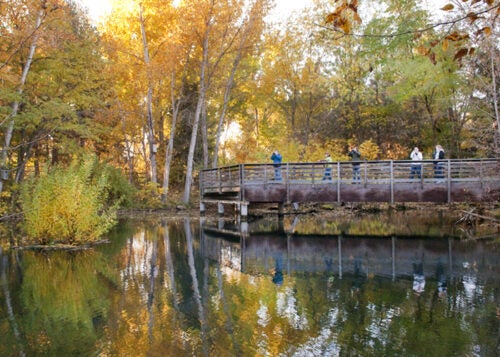
People and Nature, a journal of the British Ecological Society, has published a study, Ecosystem services enhanced through soundscape management link people and wildlife. Mitch Levenhagen, a graduate student in the Barber Sensory Ecology Lab at Boise State, led the study.
Authors include Dylan Gomes, a current Ph.D. student in the Ecology, Evolution and Behavior program, Chris McClure, a former postdoctoral researcher in the Barber Lab and current director of Conservation Science at the Peregrine Fund, and Jesse Barber, an associate professor in the Department of Biological Sciences.
The researchers studied how growing urbanization, development and human activities have reduced the opportunities for nature experiences in quiet environments. They experimented with one possible solution.
The researchers altered human-caused sound levels with the help of informational signs that encouraged quiet behaviors in week-on, week-off blocks on the trail system of Muir Woods National Monument in California. Signs located throughout the park asked visitors to speak softly, mute phones and other electronic devices, and to be aware that noise can affect wildlife.
Using continuous measurements from acoustic recording units, researchers found that the signs significantly lowered sound levels. Surveys of visitors revealed that the mitigation increased the number of birds they perceived, increased rankings of soundscape pleasantness, and importantly, revealed preferences for soundscape management.
By lowering human-caused sound levels, researchers created an acoustic environment equivalent to a 21% reduction in visitors. The positive feedback cycle described in the study has the potential to build increased conservation support in a time when nature experiences are under threat.